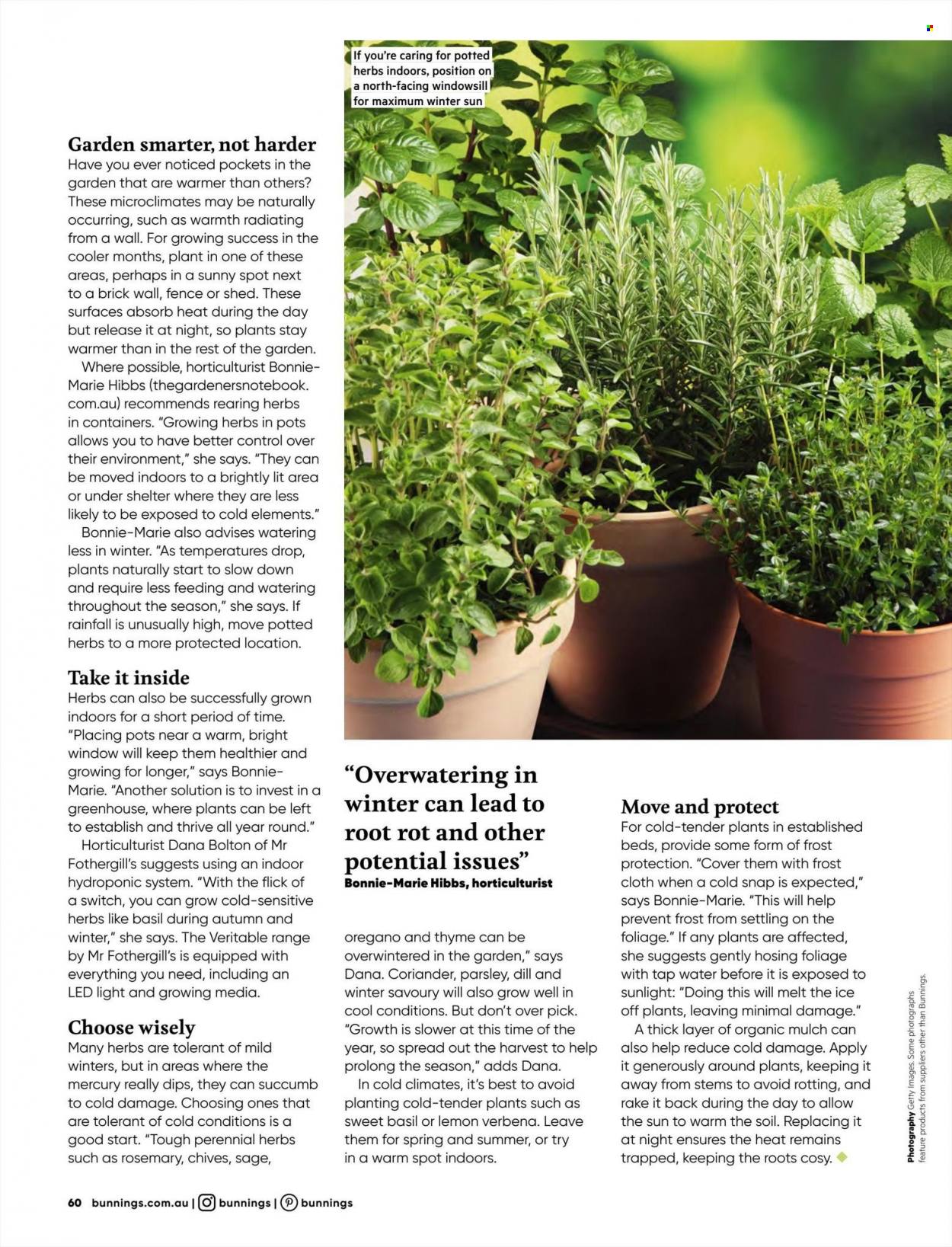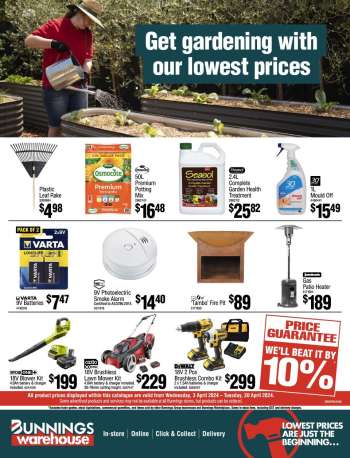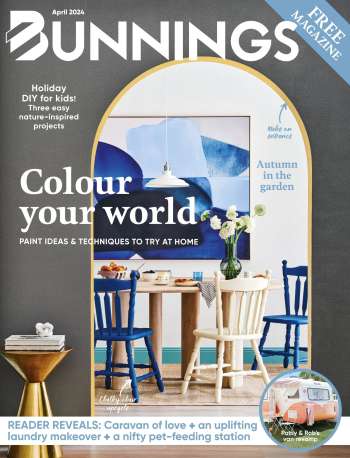If you're caring for potted
herbs indoors, position on
a north-facing windowsill
for maximum winter sun
Garden smarter, not harder
Have you ever noticed pockets in the
garden that are warmer than others?
These microclimates may be naturally
occurring, such as warmth radiating
from a wall. For growing success in the
cooler months, plant in one of these
areas, perhaps in a sunny spot next
to a brick wall, fence or shed. These
surfaces absorb heat during the day
but release it at night, so plants stay
warmer than in the rest of the garden.
Where possible, horticulturist Bonnie-
Marie Hibbs (thegardenersnotebook.
com.au) recommends rearing herbs
in containers. "Growing herbs in pots
allows you to have better control over
their environment," she says. "They can
be moved indoors to a brightly lit area
or under shelter where they are less
likely to be exposed to cold elements."
Bonnie-Marie also advises watering
less in winter. "As temperatures drop,
plants naturally start to slow down
and require less feeding and watering
throughout the season," she says. If
rainfall is unusually high, move potted
herbs to a more protected location.
Take it inside
Herbs can also be successfully grown
indoors for a short period of time.
"Placing pots near a warm, bright
window will keep them healthier and
growing for longer," says Bonnie-
"Overwatering in
Marie. "Another solution is to invest in a
greenhouse, where plants can be left
to establish and thrive all year round."
winter can lead to
Move and protect
For cold-tender plants in established
beds, provide some form of frost
protection. "Cover them with frost
cloth when a cold snap is expected,"
root rot and other
Horticulturist Dana Bolton of Mr
potential issues"
Fothergill's suggests using an indoor
hydroponic system. "With the flick of
a switch, you can grow cold-sensitive
herbs like basil during autumn and
winter," she says. The Veritable range
by Mr Fothergill's is equipped with
everything you need, including an
LED light and growing media.
Bonnie-Marie Hibbs, horticulturist
says Bonnie-Marie. "This will help
prevent frost from settling on the
foliage." If any plants are affected,
she suggests gently hosing foliage
with tap water before it is exposed to
sunlight: "Doing this will melt the ice
off plants, leaving minimal damage."
A thick layer of organic mulch can
also help reduce cold damage. Apply
it generously around plants, keeping it
away from stems to avoid rotting, and
rake it back during the day to allow
the sun to warm the soil. Replacing it
at night ensures the heat remains
trapped, keeping the roots cosy.
oregano and thyme can be
overwintered in the garden," says
Dana. Coriander, parsley, dill and
winter savoury will also grow well in
cool conditions. But don't over pick.
Choose wisely
"Growth is slower at this time of the
year, so spread out the harvest to help
prolong the season," adds Dana.
In cold climates, it's best to avoid
planting cold-tender plants such as
Many herbs are tolerant of mild
winters, but in areas where the
mercury really dips, they can succumb
to cold damage. Choosing ones that
are tolerant of cold conditions is a
sweet basil or lemon verbena. Leave
good start. "Tough perennial herbs
such as rosemary, chives, sage,
them for spring and summer, or try
in a warm spot indoors.
60 bunnings.com.au |O bunnings | O bunnings
Photography Getty Images. Some photographs
feature products from suppliers other than Bunnings.




